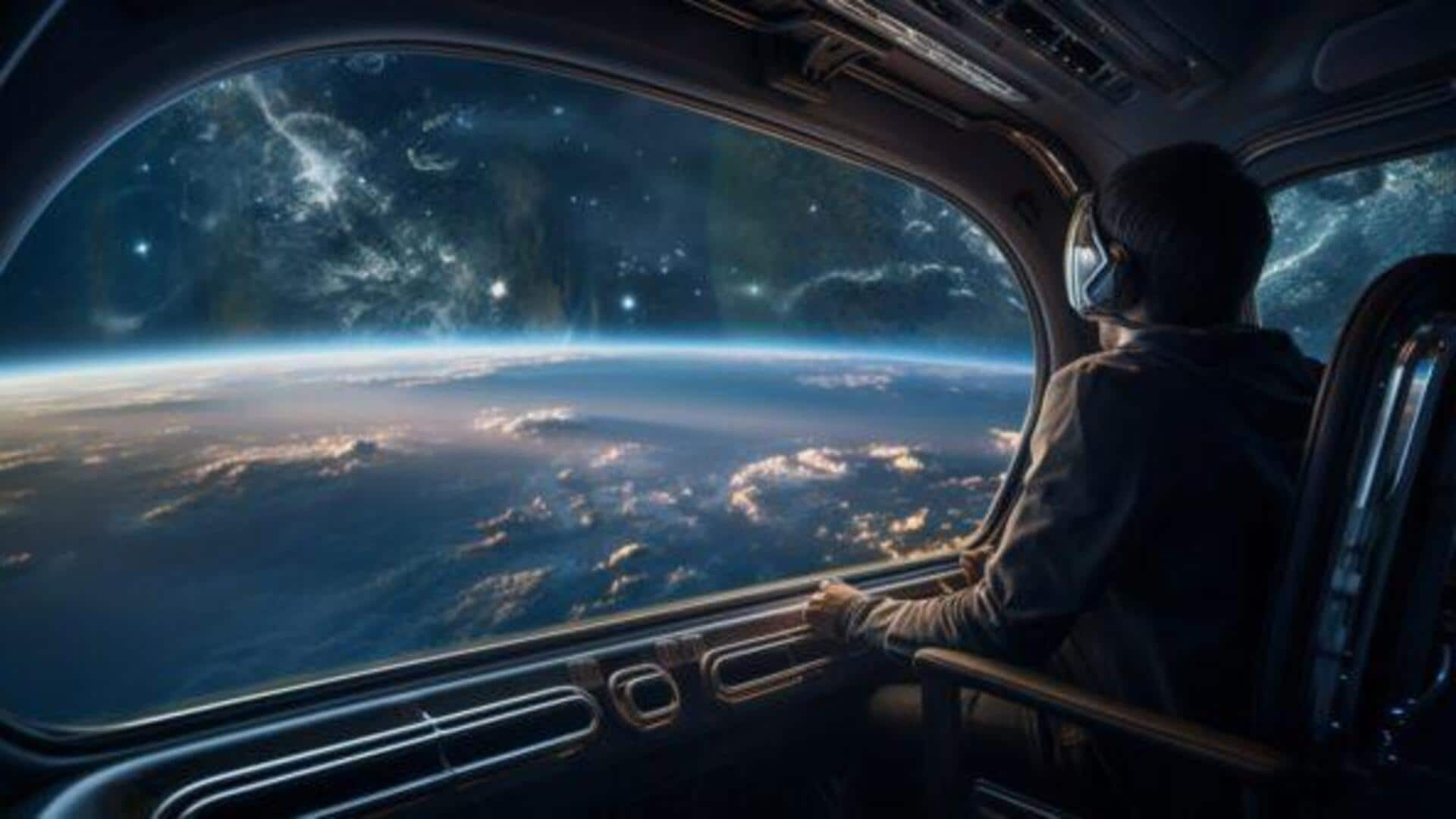
China to offer space tourism from 2027, costing $210,000/trip
What's the story
Deep Blue Aerospace, a top player in China's commercial space industry, has announced its foray into the space tourism business. The Jiangsu province-based firm plans to launch paying customers to suborbital space starting 2027. Each of these trips will cost CNY 1.5 million (about $210,000) in tickets. The company promises an "all-round, multi-sensory space journey that will be unforgettable for a lifetime."
Spacecraft details
Deep Blue Aerospace's suborbital spaceflight system
Deep Blue Aerospace has released renders of its suborbital spaceflight system, which comes with a reusable rocket-capsule combination similar to Blue Origin's New Shepard. The New Shepard can carry six passengers for a 10- to 12-minute-long flight from lift-off to capsule touchdown. Deep Blue Aerospace's suborbital missions is expected to provide a similar experience.
Ticket sales
First tickets to be sold at live event
Along with developing a reusable orbital rocket named Nebula-1, Deep Blue Aerospace also plans to sell its first two tickets during a live event today starting 6:00pm (local time). The tickets will be sold during a livestream shopping event hosted by the company's founder Huo Liang. Customers will have to pay a deposit of CNY 50,000 to secure their tickets. However, they'll have to wait several more years as the firm continues developing and testing its suborbital spaceflight system.
Safety measures
Extensive testing planned before commercialization
Deep Blue Aerospace has announced that its "spacecraft-rocket combination will also undergo dozens of tests in 2026 to ensure the safety and reliability of suborbital manned travel, and officially start suborbital travel commercialization in 2027." As part of its strategy to develop reusable rocket technology and reduce costs, the company hopes to recover a carrier rocket from orbit in Q1 2025.
Industry expansion
China's commercial space sector witnesses growth
Deep Blue Aerospace isn't the only Chinese company eyeing the space tourism market. CAS Space, a spinoff from the Chinese Academy of Sciences, is also developing a crewed suborbital vehicle and could be operational in a few years. This growth comes as part of China's broader commercial space sector expansion, with Beijing hoping to compete with rivals like Elon Musk's SpaceX.